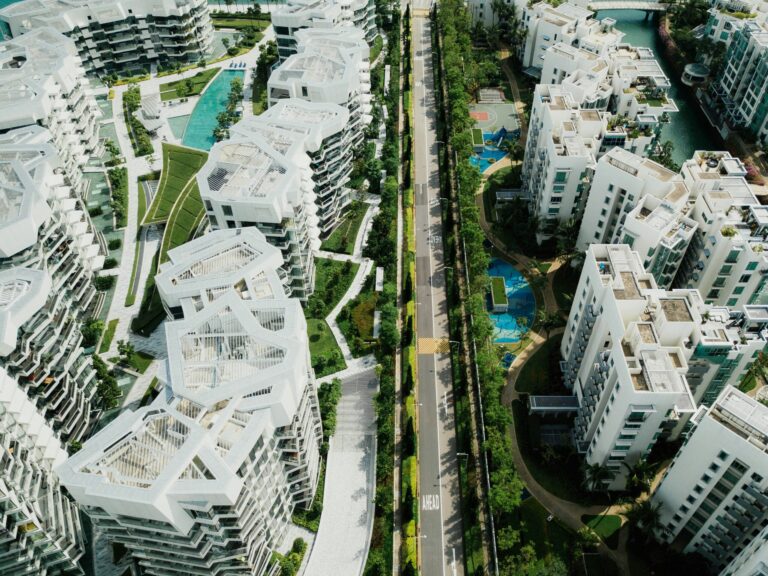The Philippine real estate sector underwent significant transformations in 2024, with pivotal changes driven by infrastructure improvements, economic policies, and growing emphasis on sustainability initiatives. A key player in this revolution was the Pambansang Pabahay Para sa Pilipino Program (4PH), which sought to address the country’s long-standing housing shortage. Through this program, the government set ambitious goals to construct 1 million housing units annually via public-private partnerships. By late 2024, the initiative had seen over 1.2 million housing projects commence, marking a significant leap in the nation’s real estate landscape.
Key Developments Shaping the Philippine Real Estate Sector
The Philippine real estate market in 2024 was marked by several transformative shifts:
- Infrastructure Development: A focus on improving transportation, utilities, and digital infrastructure has boosted property values in key urban and suburban regions. Major projects like the Metro Manila Subway, North-South Commuter Railway, and road expansions have made previously remote areas more accessible, which in turn has driven real estate development in these emerging areas.
- Pambansang Pabahay Para sa Pilipino Program (4PH): The Philippine government’s commitment to solving the housing shortage has been a central element in 2024’s real estate revolution. With the target of building 1 million affordable homes annually, the program not only aims to provide housing to low-income Filipino families but also catalyzes public-private collaborations. The program’s success has been demonstrated by the commencement of 1.2 million housing units, surpassing the initial goal and highlighting the government’s drive to modernize and expand affordable housing efforts.
- Sustainability Initiatives: Alongside government initiatives, developers are increasingly prioritizing sustainable construction practices. From eco-friendly designs and energy-efficient homes to the incorporation of renewable energy sources in building infrastructure, sustainability is becoming a core principle of modern real estate developments. Projects like green buildings and mixed-use communities are setting the standard for future developments, aligning with the global push towards reducing carbon footprints.
Opportunities for Real Estate Professionals
These developments provide numerous opportunities for real estate professionals who are poised to leverage the changes in the market:
- Engagement in Large-Scale Housing Projects: As the 4PH program progresses, real estate professionals can tap into new opportunities related to the construction, sale, and management of affordable housing. By understanding the scope of the initiative and aligning strategies with national goals, agents and developers can participate in addressing the housing backlog.
- Expansion into Emerging Markets: Infrastructure improvements have made suburban and peripheral regions more attractive for investment. Professionals who expand their operations outside of Metro Manila to these emerging markets can capitalize on the growing demand for residential and commercial properties in these areas.
- Sustainability-Focused Developments: With the increasing demand for green buildings, sustainability-focused projects will continue to gain prominence. Real estate professionals who familiarize themselves with green building certifications, such as LEED or BERDE, and who partner with developers prioritizing eco-friendly initiatives will be positioned as leaders in the sustainable real estate sector.
- Public-Private Partnerships: Professionals can engage in public-private partnerships that align with government goals, particularly in the housing sector. By participating in government initiatives like 4PH, real estate agents, developers, and investors can gain access to exclusive projects, potential tax incentives, and long-term development opportunities.
Adapting to a Changing Market
In this evolving market, it is vital for real estate professionals to stay informed and adapt quickly to the shifting landscape. This involves:
- Building Knowledge on Government Programs: Real estate agents and developers who are well-versed in programs like 4PH can effectively advise clients and partners, positioning themselves as informed advocates for national development goals.
- Leveraging Technology: As digital platforms and technology-driven solutions play an increasing role in real estate transactions, embracing online property listing services, virtual tours, and project management tools will enhance client experiences and boost efficiency.
- Networking with Key Stakeholders: Engaging with both government agencies and private developers working on large-scale housing projects or infrastructure development is crucial for identifying opportunities early. Networking will also help real estate professionals build a reputation for being industry leaders in these critical areas.
Conclusion: A Year of Transformation and Opportunity
2024 represents a landmark year for the Philippine real estate market, as it embraces infrastructure growth, government initiatives, and sustainability in a rapidly evolving landscape. Real estate professionals who understand these changes and position themselves strategically within this framework will not only contribute to the country’s growth but also benefit from the expanding opportunities across all sectors of the industry.
Source: Inquirer Business
